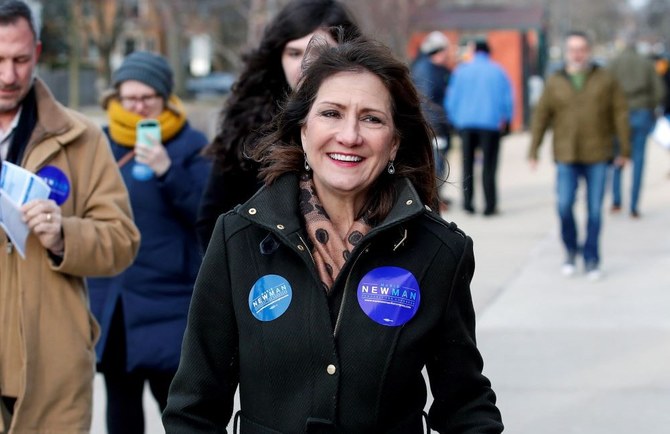
- ARAB NEWS
- 02 Jul 2025

Back in 1959, there were very few Arab Americans running for public office. One Lebanese American did manage to break through the glass ceiling that year and win election to the US Congress — George A. Kasem in California. However, he only served one term in the House of Representatives. He was later followed by fellow Lebanese American Rep. Abraham Kazen Jr., who won election to Congress in 1967 and held his Texas seat for nine terms.
Although it was not really that long ago, back then there were not many Arab American candidates on election ballots. Now, more than a half century later, we regularly see more Arab Americans than ever enter election contests for every public office, from Congress all the way down to school boards, library boards and city halls.
Still, the progress has been slow. Too slow. The number of Arab Americans running for and winning office remains low compared to many other ethnic and racial groups in America.
The question then becomes, do Arabs simply vote for anyone who has an Arab name? Or do they make the issues they represent the priority? It is a quandary many Arabs face, deciding between racial loyalty and community need.
The issues today are far more complicated for Arab Americans than they were back in 1959, when Kasem won, and even in 1967, when Kazen first triumphed. Those two politicians were pioneers who paved a path for the Arab American community to follow.
In 1971, James Abourezk, another Lebanese American, ran for and won a seat in Congress representing the state of South Dakota. After serving only one term in the House of Representatives, he became the first Arab American to win election to the Senate, where he served one six-year term.
At about that time, Arab Americans were being targeted for political persecution by the administration of President Richard Nixon. Arab Americans, regardless of their patriotism, were seen as potential terrorists and FBI agents were assigned — at great expense — to investigate many of them for merely having a public profile, writing a letter to the editor of a newspaper or magazine, or advocating for justice and statehood for Palestine.
Abourezk was important because his political success gave him the influence to help launch one of the community’s most important organizations, the American-Arab Anti-Discrimination Committee, which he co-founded in 1980, the year after he left Congress. He showed that success did not just mean holding on to office and getting reelected. It meant using that success to open doors to other opportunities that had previously been closed to Arabs since they first arrived on America’s shores. Political office can serve as a platform for community empowerment on many levels.
Still, the question the community faces is the choice between loyalty and issues. What if there are two candidates running for office, including an Arab American, but the non-Arab candidate has a record of having championed rights for Arab Americans? Do you abandon the candidate who has served your interests just to elect someone who is Arab? This is a far more difficult question than it seems.
It is a sign of maturity when a community can vote based first and foremost on the issue of who will do more to help them. How an elected official treats and serves the Arab American community is more important than their bloodline.
In Illinois, Arab American voters faced that very difficult choice when candidate Marie Newman challenged incumbent Rep. Dan Lipinski, who lacked an understanding of the community’s needs, in a 2020 Democratic primary. Lipinski and Newman faced off in the 3rd Illinois Congressional District, which a New York Times analysis showed had the largest concentration of Arab Americans of any congressional district in the country.
It was an important seat. And as nice a person as Lipinski was, his failure to fully appreciate the needs of his Arab American constituents resulted in his defeat, ending a family dynasty that began with his father, Bill Lipinski, who first won the seat in November 1982.
It is a sign of maturity when a community can vote based first and foremost on the issue of who will do more to help them.
Ray Hanania
But the real issue was that Newman, who had strong progressive and pro-Arab credentials despite not having an Arab background, was also challenged by an Arab American. Rather than rally behind Newman, who had come close to unseating Lipinski in 2018, Palestinian American Rush Darwish also decided to run in 2020, dividing the anti-Lipinski vote.
Many Arabs who could have voted for Newman instead backed Darwish, who spent more than $800,000 on his campaign and received 6 percent of the votes cast. In the end, Newman unseated Lipinski and became the most pro-Arab member of Congress Illinois had ever seen.
Two years later, in March 2022, Newman, facing a difficult fight because the redrawing of congressional districts had weakened her chances, was defeated in the primary for the 6th Illinois District. Newman’s loss was a great loss for Arab Americans.